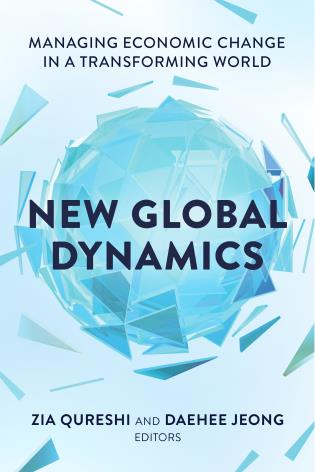U.S.-Africa relations have certainly been on the front burner in recent weeks. On June 6, U.S. President Barack Obama hosted Nigerian President Goodluck Jonathan at the White House. The next day, President Obama also hosted Gabonese President Ali Bongo Ondimba. Four days later in Zambia, U.S. Secretary of State Hillary Clinton addressed participants at the closing ceremony of the African Growth and Opportunity Act (AGOA) Forum. Designed to provide preferential treatment to 37 African countries deemed to be making progress in economic and political reforms, AGOA remains the core of U.S. trade policy toward the continent over the last 10 years. Secretary Clinton also traveled to Tanzania and Ethiopia, where she addressed the Africa Union and had private talks with the Ethiopian Prime Minister Meles Zenawi. Last week, First Lady Michelle Obama traveled with her daughters in South Africa and Botswana on an official visit.
Certainly both the United States and African countries value good relations. However, this does not fully explain why the Nigerian president visited the White House barely a week after his inauguration or why President Obama would host Gabonese President Ali Bongo, whose visit was knowingly controversial and caused plenty of public outrage. What do the presidents of Nigeria and Gabon hope to gain and what can the U.S. exact in return?
Prestige and recognition is one reason why both these presidents looked forward to be hosted by President Obama. Legitimacy in the eyes of the U.S. and African public is another compelling reason. Nigeria is the most populous country in Africa with enormously unfulfilled economic potential and a fledgling democracy that has, in the eyes of the international community, failed to deliver a credible process in its last three elections. By all measures, Nigeria is seriously corrupt and poorly governed. It is as poorly governed as Gabon, but its governance indicators do not reflect this because Nigerians are very enterprising, thus enabling them to better cope with their predicament. Using information from the United Nations Development Programme’s Human Development Index to construct a practical indicator, such as the gap between a country’s wealth ranking and its welfare ranking, Nigeria registers a mere 7 percentile deficit. By contrast, Gabon registers a 16 percentile deficit. While President Jonathan of Nigeria is not responsible for the socioeconomic predicament of his people, the same cannot be said of President Ali Bongo of Gabon, who currently faces widespread allegations of plundering his country’s public resources in collaboration with his late father whom he succeeded after the latter’s 42 consecutive years of rule.
Both African presidents would like to be recognized for incipient reforms. However, many of the promised reforms have yet to be delivered. President Jonathan would like to be acknowledged for keeping his promise to conduct a credible election in Nigeria or at least for improving the status quo. Yet, the same cannot be said for the promises of reform made by President Ali Bongo. So, why did President Obama host a visit by President Bongo at the White House? The short answer is that Gabon is of strategic interest to the United States and whenever foreign policy principles are in conflict with domestic interests, the latter trumps the former.
There are maritime security interests for the U.S. around the oil rich region from the Gulf of Guinea to Skeleton Coast. There are also U.S. expectations of Gabon that include weaning France’s Africa policy of “Franceafrique,” at least with regard to Gabon and by extension to other francophone countries. Such diminution of Frances’ sphere of influence conversely promotes U.S. standing among traditionally francophone states within the sub-Saharan region. Furthermore, acting in conjunction with Rwanda, Uganda and Ethiopia, Gabon has been busy with “African affairs”, particularly around the troubled countries of Central: Africa Chad, Central African Republic, Congo, Democratic Republic of Congo, Burundi, Sudan and Somalia. Gabon also withdrew from OPEC membership in 1995, which is a preferred outcome for large oil-consuming countries like the United States.
It seems that the Gabonese president’s visit is an accommodation of the interests of a strategic ally, while there is an opportunity to leverage the Nigerian president’s visit to encourage more meaningful reforms in the nation. President Jonathan could use support from the U.S. in pressing forward with some fundamental reforms in Nigeria in the area of public finances at the national, state and local levels. However, in order to achieve meaningful reforms, the political power base in Nigeria must shift. To accomplish this purpose, President Jonathan needs all the help he can muster, externally and internally.
President Obama’s historic visit to Ghana in 2009 enunciated his administration’s foreign policy thrust toward Africa, which rests on several pillars: good governance, partnership for transformational change, support to strong and sustainable democratic governments, and the need to end conflicts in the region. Clearly some of these guiding principles are at variance with the U.S. support for countries like Ethiopia, Uganda and Gabon. In The Politics of Power: A Critical Introduction to American Government, Ira Katznelson, Mark Kesselman and Alan Draper cite human rights activist Aryeh Neier, who suggests that the United States employs double standards in its human rights policy. “It rarely condemns human rights abuses against powerful countries… ‘The United States would not press human rights concerns where important economic interests are at stake.’” To which I would add: “or where other strategic interests are at stake”, as has been demonstrated in its support of China’s application for WTO membership in 2002, of Mobutu’s administration in the Democratic Republic of Congo, of Hosni Mubarak in Egypt before the revolution and of the Saudi Monarchy. The takeaway here is that President Obama’s accommodation of Ali Bongo is not out of character with how the United States has historically conducted its foreign policy.



Commentary
Staying the Course: U.S. – Africa Relations
June 30, 2011